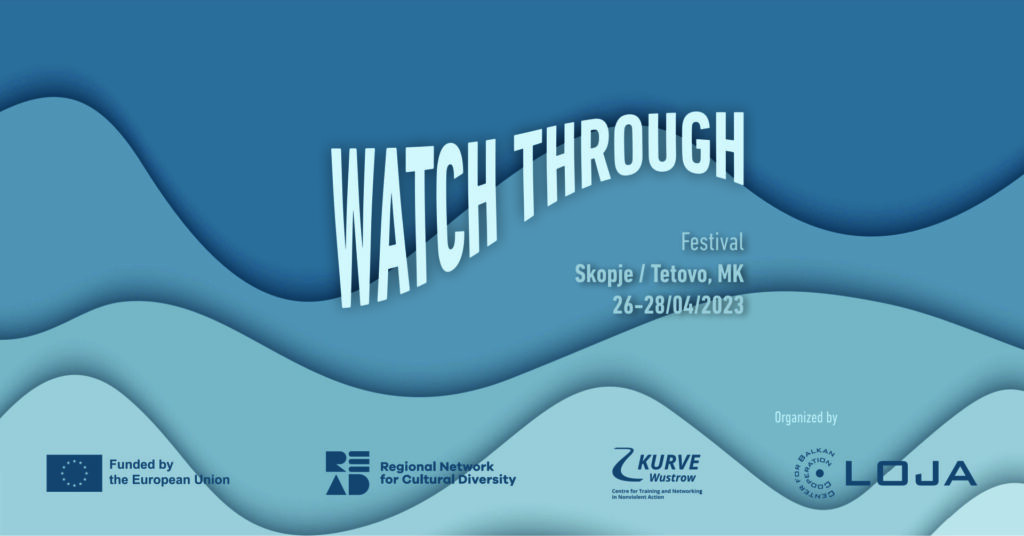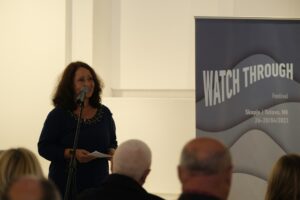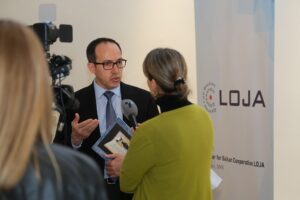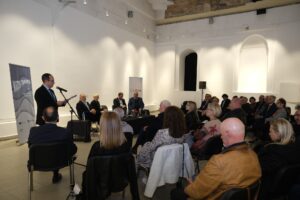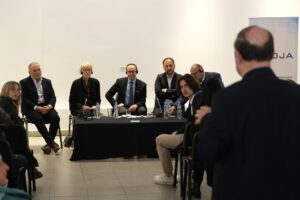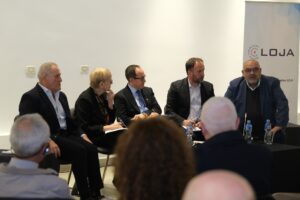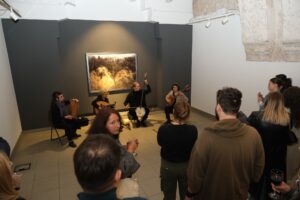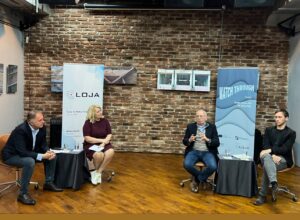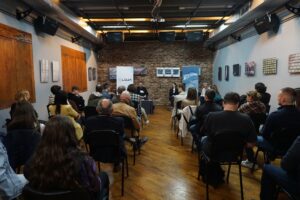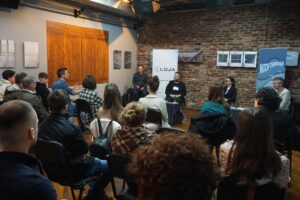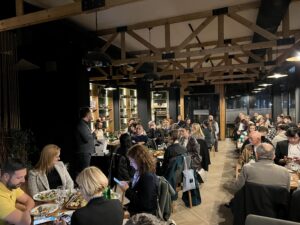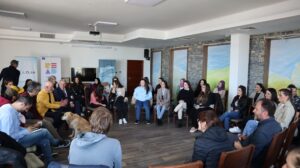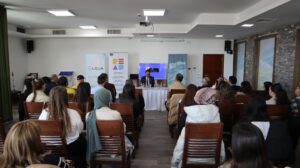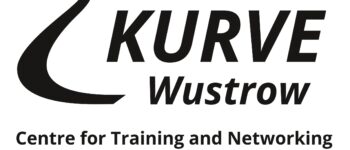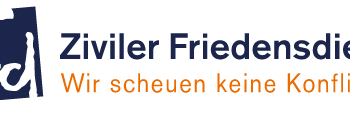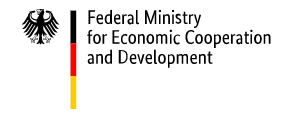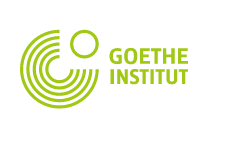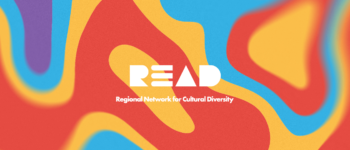WATCH THROUGH is a festival that brings together writers, peacebuilders, and activists and aims to create a synergy that can stimulate positive change in society and inspire others to act toward a better future with the perspective of European Integration. By focusing on education, literature, civic engagement, and environmental protection, it is intended to promote understanding, empathy, activism, and critical thinking, which are essential for peaceful coexistence and sustainable well-being. WATCH THROUGH festival is organized by Center for Balkan Cooperation LOJA and its partners in the frame of EU funded project Regional Network for Cultural Diversity – READ and the Civil Peace Service project – CPS, supported by BMZ – Germany.
The festival took place during the 26. – 28. April. 2023

